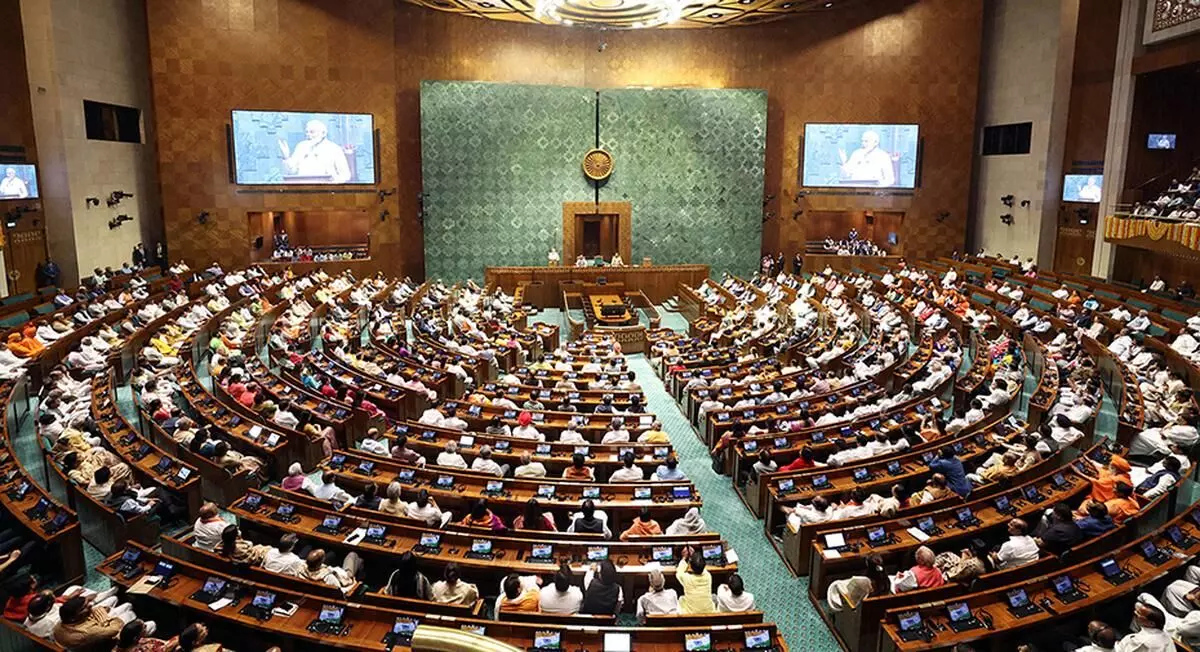Waqf Amendment Bill 2024 Set for Lok Sabha Debate Tomorrow
Waqf Amendment Bill 2024 Set for Lok Sabha Debate Tomorrow

The much-discussed Waqf Amendment Bill, 2024, is scheduled for presentation in the Lok Sabha tomorrow, sparking anticipated debate and opposition from various political groups. The Bill seeks to amend the Waqf Act of 1995, which governs the management of Waqf properties in India, a move that has drawn significant resistance, particularly from the All India Muslim Personal Law Board (AIMPLB), which opposes the changes.
The proposed amendments come at a time when there is considerable controversy surrounding the control and use of Waqf properties, which include land dedicated for religious, charitable, or pious purposes under Muslim law. The current legislation regulates how these properties are managed, and the government asserts that Waqf land, which spans nearly 9 lakh acres, is being inefficiently managed, necessitating reforms.
The amendment has stirred opposition, with critics, including the Congress-led INDIA alliance, arguing that the Bill targets the Muslim community and undermines their rights. They claim that the changes in the legislation are harmful to minority interests.
Key Changes in the Waqf Amendment Bill
1. Removal of the 'Waqf by User' Provision
The Bill proposes the removal of the "waqf by user" clause, which allows land to be classified as Waqf based on long-term usage. The Joint Parliamentary Committee (JPC) recommends that this change apply only prospectively, meaning it would not affect previously classified Waqf lands.
2. Eligibility for Creating Waqf
While the original law permitted any individual to establish a Waqf, the Amendment Bill introduces stricter eligibility criteria. Under the proposed law, only individuals who have practiced Islam for at least five years will be allowed to create a Waqf. The JPC further tightened this condition, requiring proof of continuous practice of Islam for the stated period.
3. Dispute Resolution over Waqf Land Ownership
The Bill alters the process for resolving disputes regarding the ownership of land designated as Waqf. In the current system, disputes are settled by the Waqf Tribunal. However, under the proposed changes, the district collector will handle these cases. The JPC report suggests appointing a higher-ranking official to resolve disputes, rather than a district-level officer, to ensure impartiality.
4. Waqf Registration and Ownership Claims
The Bill mandates that all Waqf properties be registered within six months of the law’s enactment. After this period, individuals will no longer be able to initiate court proceedings to claim ownership of such properties. However, the JPC's report indicates that the timeline for legal actions should be left to judicial discretion.
5. Changes to Waqf Tribunal Composition
The Bill introduces modifications to the composition of the Waqf Tribunal. While the existing law stipulates the appointment of a Muslim CEO, the Amendment Bill allows for the possibility of a non-Muslim CEO. Additionally, the Bill stipulates that two members of the Waqf board, excluding ex-officio members, must be non-Muslims. This change also includes provisions for representation from the Bohra and Aghakhani communities.
Introduced in the Lok Sabha on August 8, 2024, the Waqf Amendment Bill was referred to a Joint Parliamentary Committee the following day. After reviewing the Bill, the JPC submitted its report on February 13, 2025, recommending several key changes. This Bill now awaits further debate and approval in Parliament.
The Waqf Amendment Bill has been contentious, with supporters arguing that the reforms are necessary for more effective management of Waqf properties, while opponents claim it infringes on Muslim community rights.


